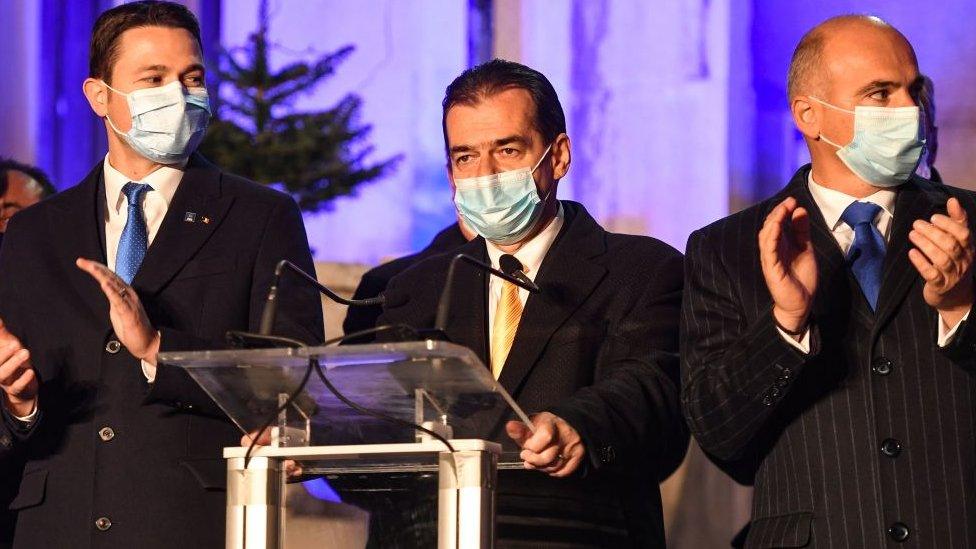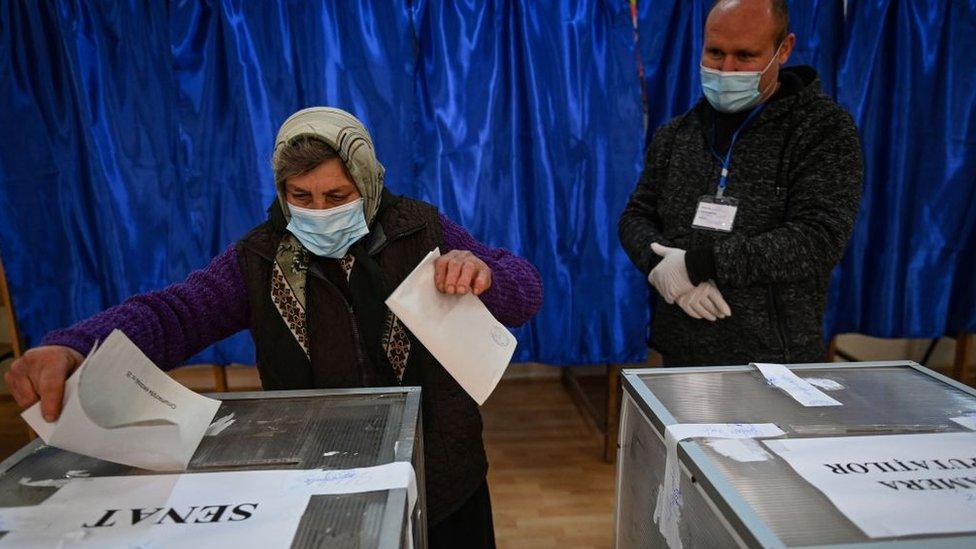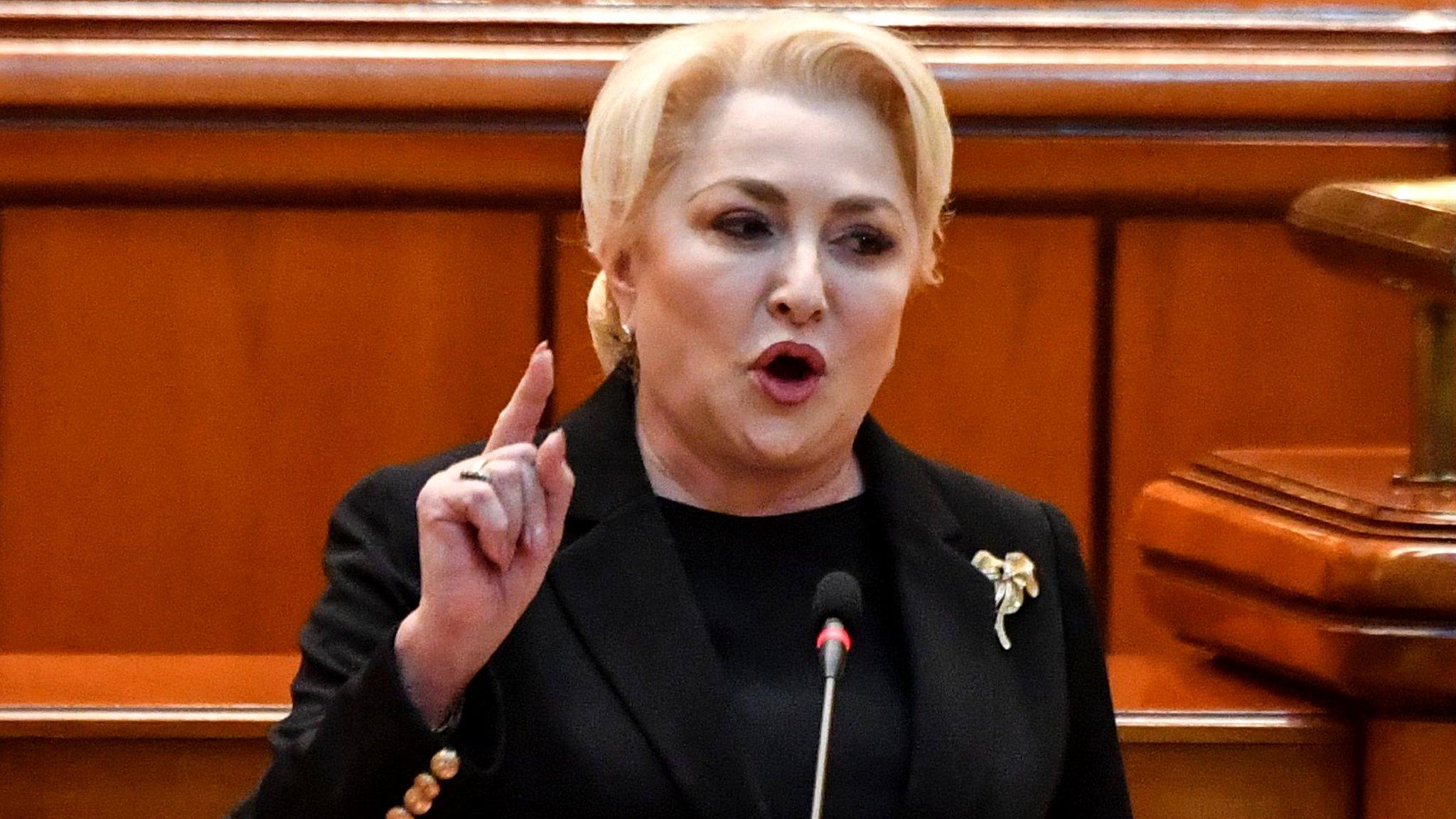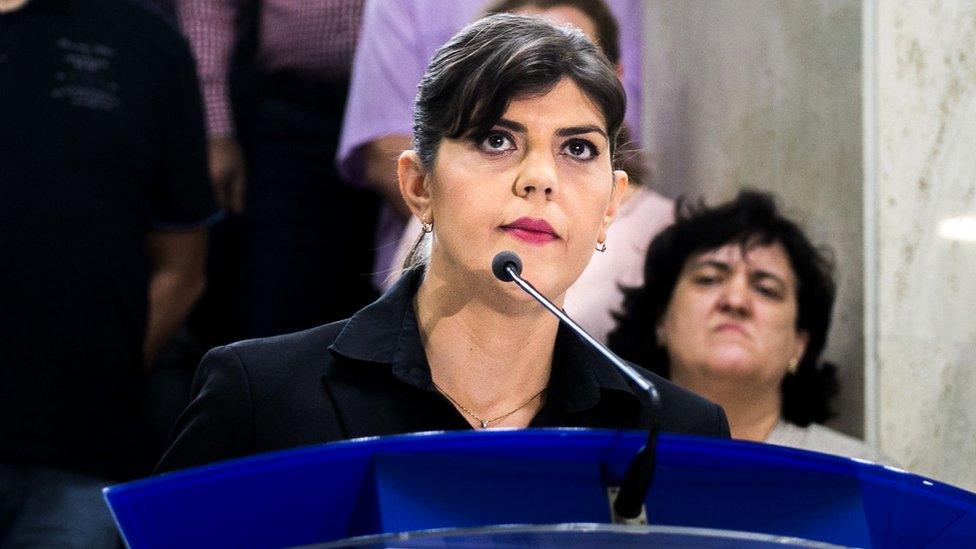Romanian opposition takes narrow lead after election
- Published

PM Ludovic Orban (c) is expected to be able to form a government
Romania's opposition Social Democrats (PSD) have taken a narrow lead over the governing National Liberal Party (NLP) after Sunday's parliamentary elections.
With 80% of ballots counted, the PSD had 30% of the vote to the NLP's 25%.
However, it is unlikely that the Social Democrats will take charge, as Prime Minister Ludovic Orban's party has more potential allies.
Several smaller parties will hold the balance of power, which appears to favour a Liberal-led coalition.
Turnout was a record low of 33%. Romania is one the poorest countries in the EU and millions of its citizens have moved abroad in recent years in search of better lives - in particular to western EU member states.
The Liberals back closer EU integration, while the Social Democrats are more nationalist and populist.
After an exit poll predicted a strong showing by the PSD, party leader Marcel Ciolacu said he expected "Orban's resignation".
"It is what Romanians have asked for with their votes," he said.
Mr Orban, however, claimed victory, saying: "We will seek to represent an array of interests."

The election was marred by a record low turnout
Correspondents say the NLP should be able to form a government in a coalition with the recently formed USR-Plus party, which looks to have won about 15% of the vote.
Another potential NLP ally is the UDMR party which represents the country's Hungarian minority. The party has already said it wants to co-operate with the NLP.

Opposition bounces back from corruption scandals
Analysis by Nick Thorpe, BBC News Central Europe Correspondent
This was a disappointing result for Prime Minister Ludovic Orban and his National Liberals, but may prove just enough to remain in power.
The opposition Social Democrats, who have dominated Romanian politics since the 1989 revolution, bounced back from a series of corruption scandals.
Rural voters in particular accused the Liberals of incompetence in handling the coronavirus epidemic.
A far-right nationalist party, Alliance for Romanian Unity (AUR), will enter parliament for the first time with almost 9% of the vote.
Related topics
- Published10 October 2019

- Published19 September 2019
